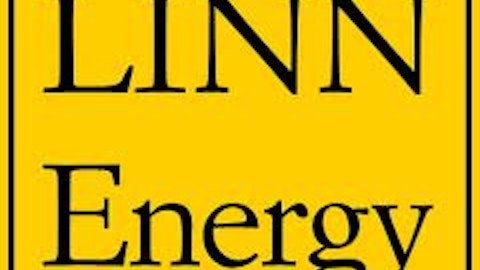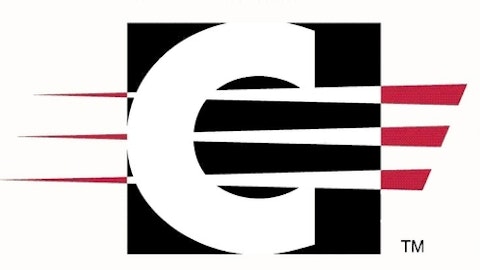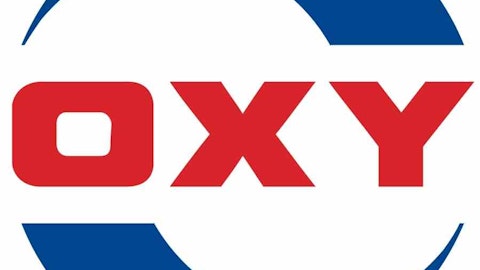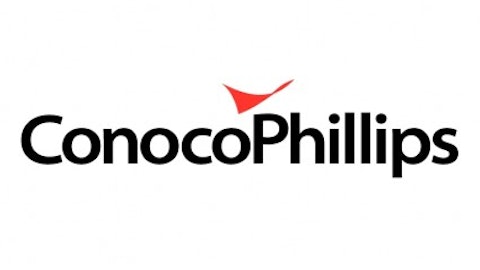Share buybacks are one of the main way’s management teams return cash to shareholders. Share repurchases serve a variety of purposes. First, it’s a tax-advantaged alternative to paying dividends. In addition, it serves as a floor under a company’s earnings per share. That’s because as a company buys back and retires its own shares, there are fewer shares outstanding, and leading to a higher reported EPS.
As a result, share repurchases are an important consideration when buying a stock. And, when a company slows the pace of its usual share repurchases, it may be a reason for investors to worry. That’s exactly what Exxon Mobil Corporation (NYSE:XOM) is doing, and investors are likely concerned. In light of this, how should you proceed?
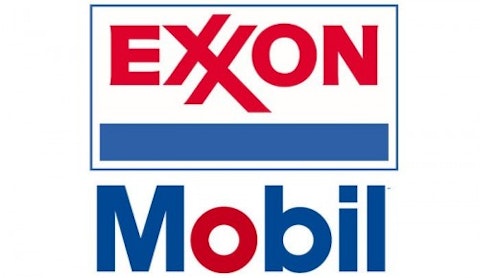
Pumping out fewer buybacks
Exxon Mobil Corporation (NYSE:XOM) repurchased $4 billion of its own shares in the most-recent quarter. While investors may scoff at the notion that $4 billion in quarterly share buybacks could possibly be a cause for concern, it’s nonetheless important to take note of, and what the implications may be.
Exxon Mobil Corporation (NYSE:XOM) repurchased $5.6 billion worth of its own shares in the first quarter, and prior to the second quarter, had bought back at least $5 billion of its own stock for ten consecutive quarters. Going further back, Exxon has repurchased $210 billion of its own shares over the past ten years. Therefore, while $4 billion is still a huge sum, it represents a 25% drop from the company’s usual level of share repurchases. And, the level of buybacks in the current quarter is expected to drop even further, to $3 billion, according to analysts with Oppenheimer.
Importantly, Exxon Mobil Corporation (NYSE:XOM)’s long-held policy of aggressive share buybacks have served as a major avenue for returning cash to shareholders. Through buybacks, ExxonMobil has reduced its shares outstanding by 35% since Exxon and Mobil merged in 1999. This has meant more reserves, production value, and profits for every remaining share outstanding. Since 2008, each Exxon share has an interest in 21% more production volumes, and 5% annualized production growth per share.
Exxon Mobil Corporation (NYSE:XOM) has a significantly lower dividend yield than many industry peers, at about 2.8%, so share repurchases are how the company historically chose to reward its investors. Consider that competitor BP plc (ADR) (NYSE:BP) has bought back just $2.9 billion of its own stock year to date. And, going forward, the company plans a relatively modest $8 billion share buyback program with an undetermined target date of completion. Instead of relying on buybacks, the company offers its investors a much bigger dividend, which yields 5.2% at recent prices. Therefore, it’s clear that share repurchases are a huge piece of Exxon Mobil Corporation (NYSE:XOM)’s shareholder return pie.
In addition, it raises the question of what management may be signaling to investors. A company buys back its own stock because it feels it’s undervalued, and that business conditions going forward should be strong enough to justify allocating shareholder money to buying back its own stock. Consequently, a company reducing the pace of its buybacks, especially when it had maintained that pace for two and a half years, should raise a red flag.
Indeed, Exxon’s last quarter report provided investors with more than enough evidence that business is less than spectacular. A combination of factors, including lackluster refining results, brought down ExxonMobil’s second-quarter net income by a whopping 57% year over year.
Naturally, as one oil major does, others may follow, and investors may be wondering which energy giant may be next in slowing its share buybacks. That’s why it was so important for Chevron Corporation (NYSE:CVX) executives to comment on its own share buyback program. Fortunately for investors, Chief Financial Officer Patricia Yarrington assured investors and analysts that since the company’s debt ratio is under control,at just 12%, its buybacks are not in jeopardy unless business conditions deteriorate severely. Chevron Corporation (NYSE:CVX) repurchased $1.25 billion of its own shares during the first and second quarter of 2013.
Are slowing buybacks truly a cause for concern?
In isolation, a reduced share buyback program may be a short-term difficulty. At the same time, it’s hard to ignore the larger picture facing Exxon Mobil Corporation (NYSE:XOM), which is a broader slowdown in overall results. The company’s poor quarter is indeed a concern, and ExxonMobil is starting to show cracks in its once impenetrable armor.
The plus side, of course, is that even with poor results from its natural gas business and a reduced buyback, Exxon is still a provider of huge shareholder rewards. The company pays billions in dividends in addition to buybacks, and has a tremendous track record of richly rewarding investors: Exxon has raised its dividend for 31 years in a row.
For investors looking for an energy major enjoying a smoother ride in the current environment, Chevron Corporation (NYSE:CVX) certainly fits the bill. In my estimation, both Chevron and Exxon are fantastic stocks that can be bought and held for decades.
The article Are Reduced Share Repurchases Reason to Sell This Oil Major? originally appeared on Fool.com and is written by Robert Ciura.
Robert Ciura has no position in any stocks mentioned. The Motley Fool recommends Chevron.
Copyright © 1995 – 2013 The Motley Fool, LLC. All rights reserved. The Motley Fool has a disclosure policy.
